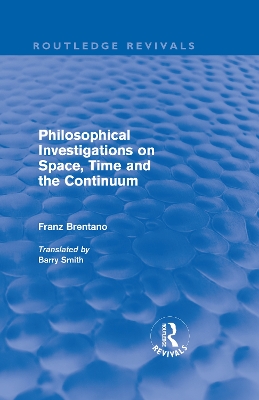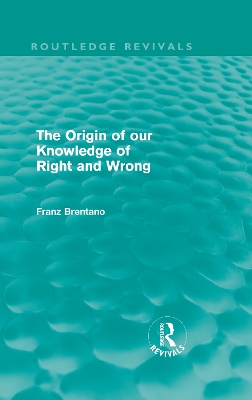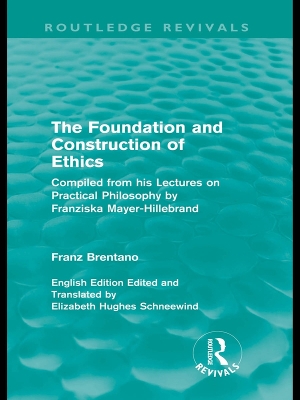Routledge Revivals
4 total works
First published in English in1966, The True and The Evident is a translation of Franz Brentano's posthumous Wahrheit und Evidenz, edited by Oscsar Kraus. The book includes Brentano's influential lecture "On the Concept of Truth", read before the Vienna Philosophical Society, a variety of essays, drawn from the immense wealth of Brentano's unpublished material, and letters written by him to Marty, Kraus Hillebrand, and Husserl.
Brentano rejects the familiar versions of the "correspondence theory of truth" and proposes to define the true in terms of the evident. In criticising the metaphysical assumptions presupposed by the correspondence theory, he sets forth a conception of language and reality that has subsequently become known as "reism".
Philosophical Investigations on Time, Space and the Continuum (Routledge Revivals)
by Franz Brentano
Franz Brentano is recognised as one of the most important philosophers of the late nineteenth and early twentieth centuries. This work, first published in English in 1988, besides being an important contribution to metaphysics in its own right, has considerable historical importance through its influence on Husserl’s views on internal time consciousness. The work is preceded by a long introduction by Stephan Körner in collaboration with Brentano’s literary executor.
The Origin of Our Knowledge of Right and Wrong (Routledge Revivals)
by Franz Brentano
Based on a lecture given before the Vienna Law Society in 1889, this title had an extraordinary influence in the field of philosophy. It provided the basis for the theory of value as this was developed by Meinong, Husserl and Scheler. In addition, the doctrine of intentionality that is presented here is central to contemporary philosophy of mind.
The Foundation and Construction of Ethics (Routledge Revivals)
by Franz Brentano
Expanding on the theory of ethics first posited by Brentano in The Origin of our Knowledge of Right and Wrong this re-issued work, first published posthumously in 1952, is based on series of lectures on practical philosophy, given at the university of Vienna from 1876 to 1894.
The English-speaking reader will find it interesting to examine the step-by-step development of Brentano's ethical theory, his extensive critique of British moral philosophers, and his unusually detailed section on casuistry.



